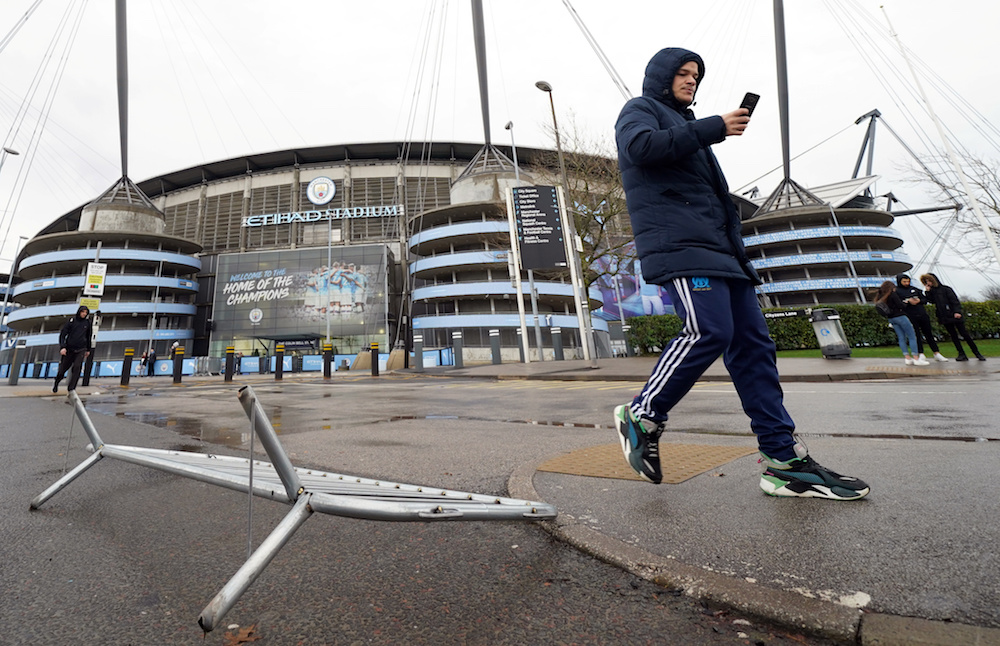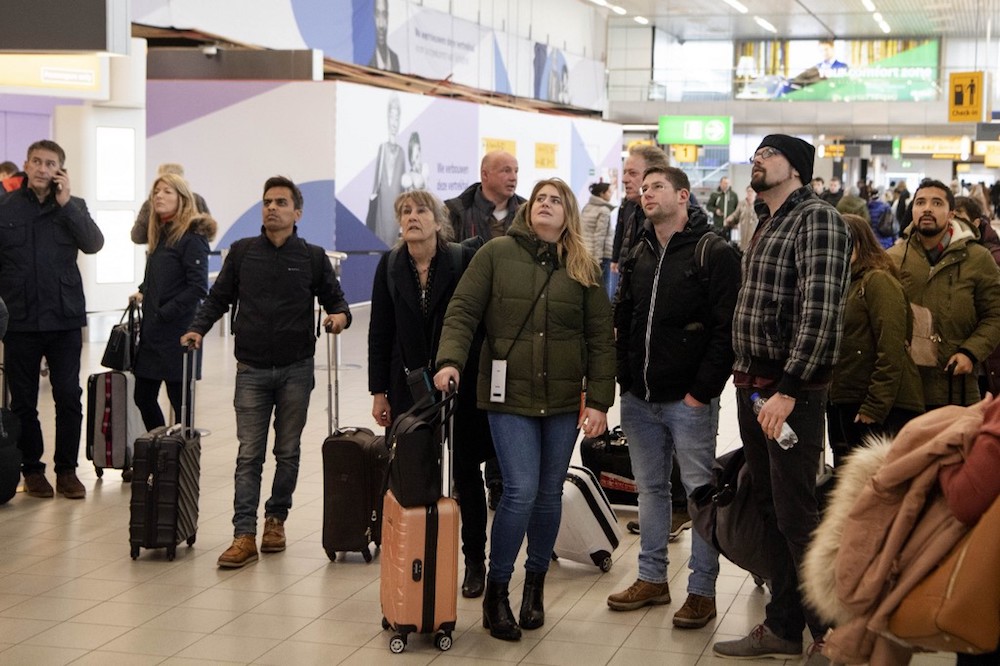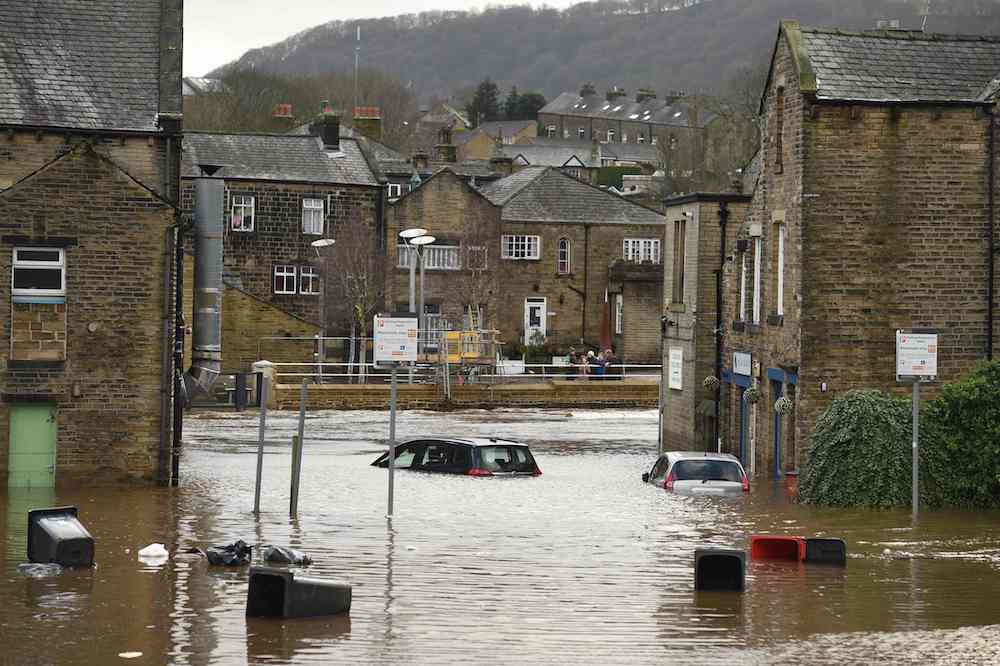LONDON: Storm Ciara battered the UK and northern Europe on Sunday with hurricane-level winds and heavy rains, which led to grounded flights, canceled trains and closed ports.
Events across Britain, Germany and the Netherlands were postponed, including a Premier League football match involving Manchester City and West Ham United, as authorities urged millions of people to stay indoors, away from falling tree branches.

A fan walks outside the Etihad Stadium during storm Ciara after the Manchester City v. West Ham United Premier League game was postponed. (Reuters)
Named “Ciara” by the UK Met Office weather agency, but known as “Sabine” in Germany, the storm brought massive gusts that hit their peak at 150 kilometers per hour in the northern Welsh village of Aberdaron. Storm surges ate away at beaches and pounded rock cliffs and cement docks.
In response, the Met Office issued 190 emergency flood warnings and another 170 flood watch alerts, urging people not to try to drive through flooded roads.
Three people were injured after a roof partially collapsed on Saturday evening in the city of Perth in central Scotland.
At least 10 rail companies in Britain sent out “do not travel” warnings, while nearly 20 others told passengers to expect extensive delays. The strong winds damaged electrical wires and littered train tracks with broken tree limbs and other debris, including a family trampoline.
London’s Heathrow Airport and several airlines were forced to consolidate flights on Sunday to reduce the number of cancelation due to the high winds. British Airways offered to rebook customers for domestic and European flights out of Heathrow, Gatwick and London City airports. Virgin Airlines canceled some flights.
Brussels Airport in Belgium and Amsterdam's Schipol Airport also saw delays or cancelations.

Travelers wait at the departure hall of Amsterdam's Schiphol airport on February 9, after many flights have been cancelled due to storm Ciara. (AFP)
Two huge ports on either side of the English Channel, Dover in England and Calais in France, shut down operations amid high waves. Ferries were canceled across the region, including in the turbulent Irish Sea.
Breaking with her usual Sunday routine, Queen Elizabeth II did not attend church in Sandringham due to high winds.
In Ireland, power was knocked to an estimated 10,000 homes, farms and businesses. National weather agency Met Eireann warned that a combination of high tides, high seas and stormy conditions had created a significant risk of coastal flooding, particularly in the west and northwest.

Cars are seen submerged as flood water covers the roads and car parks in Mytholmroyd, northern England, on February 9, 2020, after the River Calder burst its banks as Storm Ciara swept over the country. (AFP)
Fierce winds knocked out electricity in northern France as well. Parks and cemeteries in the city of Lille and nearby towns shut down as strong winds cracked heavy branches and threatened to fell trees. Open-air markets also closed early Sunday.
Luxembourg announced that all schoolchildren could stay home Monday as a result of the storm.
-------
READ MORE: Riders in the storm: Dutch cyclists brave Storm Ciara in ‘Headwind Championships’
-------
In Germany, national railway operator Deutsche Bahn canceled long-distance trains to destinations most at risk from the storm, including Emden and Norddeich in Germany’s northwestern corner, the northern city of Kiel and the North Sea island of Sylt.
In the world of sports, dozens of soccer games, horse races, rugby matches and other events were called off, with the Dutch and Belgian football associations calling off all matches in their top-flight leagues due to safety concerns.
(With AP)


































